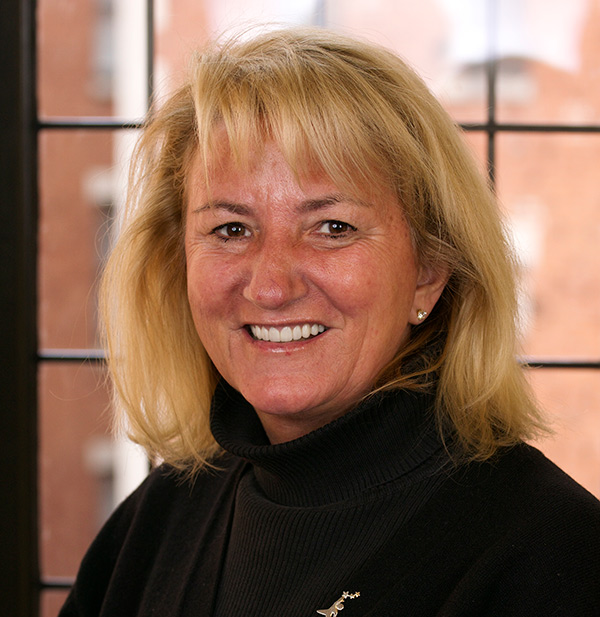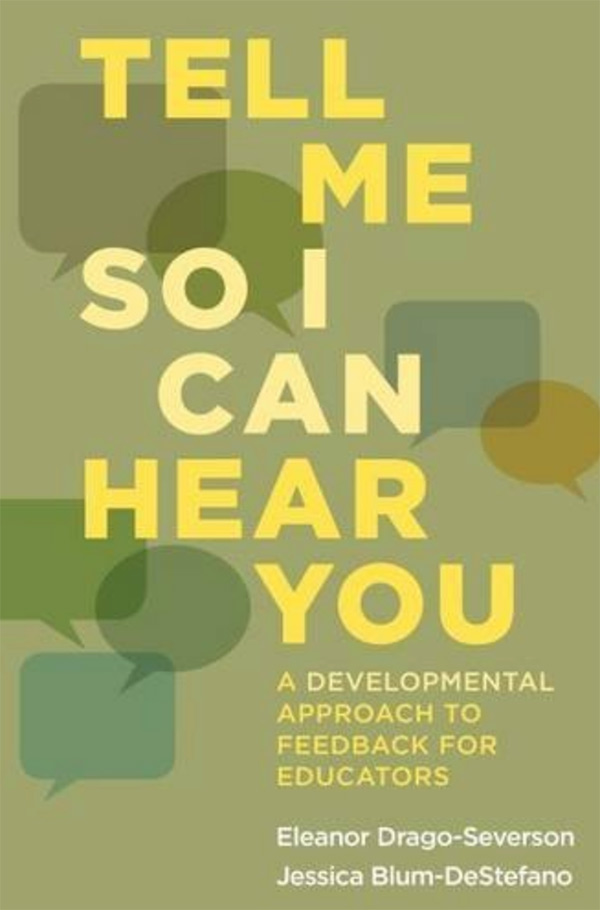It’s All in How You Say It: Ellie Drago-Severson on the Power and Pitfalls of Feedback

Few understand as well as Eleanor Drago-Severson how a single word, “feedback,” can disrupt the moral fabric of a teacher or leader otherwise possessed of strong heart and mind.
Feedback in the eyes of school leaders is a constructive means to evaluate faculty performance in the classroom. But many also see it as “the third rail of leadership” because teachers on the receiving end of evaluations often hear “feedback” as a polite word for “criticism” – and criticism can mean a threat to one’s livelihood.
It’s an understandable conflation – but one that can be avoided, contend Drago-Severson, Professor of Education in the Department of Organization & Leadership and TC alumna Jessica Blum-DeStefano, a Bank Street College of Education instructor. In fact, in their 2016 book, Tell Me So I Can Hear You: A Developmental Approach to Feedback for Educators (Harvard Education Press), Drago-Severson and Blum-DeStefano argue that, through a better understanding of basic human nature, feedback can be flipped to become a force for positive change. And as the book has emerged as a landmark in the field, the two have since been offering Leadership Institutes for School Change through Teachers College’s Continuing Professional Studies office, focusing on a developmental approach to feedback and supporting adult development.
"When you bring developmental intentionality into the process it helps to understand that people need to receive feedback in different ways. Some people want to get it straight, right to the point, no sugar coating. But that doesn’t work for other people. In the final analysis, people orient to the world in qualitatively different ways—and, therefore, we need to differentiate the way we offer feedback to accommodate this.”
— Ellie Drago-Severson
“Feedback given in a context that can hold a person well can actually help someone develop greater cognitive, emotional, interpersonal and intrapersonal capacities,” said Drago-Severson, whom Harvard cognitive scientist Howard Gardner has called “one of our most insightful experts on the development of adult educational leaders,” praising her “ability to move back and forth comfortably between powerful ideas and promising practices.”
Tell Me So I Can Hear You outlines practical applications of theoretical ideas imparted to Drago-Severson by her own teacher and academic mentor, the Harvard psychologist Robert Kegan, known as the forefather of “constructive-developmental theory.”
In work published in 1982, Kegan determined that adults employ four essential meaning making systems, which Drago-Severson refers to as “ways of knowing” to “make sense of their work, lives and relationships” and “see and interpret their world.”
The four ways – “instrumental,” “socializing,” “self-authoring” and “self-transforming” – inform an individual’s self-perception and, therefore, function as his or her lens for viewing the universe.

In their book, Drago-Severson and Blum-DeStefano call for implementing constructive-developmental theory as a lens for evaluating teachers (and others who work in non-educational environments as well), asking education leaders to recognize the importance of their own and each teacher’s ways of knowing – or, in layman’s terms, to fold an understanding of where a teacher is coming from into evaluations of classroom effectiveness. “Feedback must take into account the different developmental capacities of both feedback givers and receivers,” they write.
For example, an evaluator who employs a developmental approach will likely recognize how a “rule-oriented” teacher who falls into the “instrumental way of knowing” category might respond differently to feedback than a teacher with a “socializing” way of knowing who defines him or herself through the judgment of others.
“Most people don’t think of feedback as a process, but rather as an event that happens once a year,” said Drago-Severson. Typically their expectations are negative, “but feedback can be positive. And when you bring developmental intentionality into the process it helps to understand that people need to receive feedback in different ways. Some people want to get it straight, right to the point, no sugar coating. But that doesn’t work for other people. In the final analysis, people orient to the world in qualitatively different ways—and, therefore, we need to differentiate the way we offer feedback to accommodate this.”
"Giving feedback is also about listening.You can give a person all the feedback in the world. But they’ll do nothing with it if you’re not listening to what that person needs.”
— Ellie Drago-Severson
Tell Me So I Can Hear You also dispels the further misconception that feedback is a one-way conversation.
“Our editor kept asking, ‘Why are you talking so much about listening? Giving feedback is about talking,’” said Drago-Severson. But feedback “is also about listening,” she recalls replying. “You can give a person all the feedback in the world. But they’ll do nothing with it if you’re not listening to what that person needs.”
The authors’ research with educators powerfully supports that argument.
Asked to recall helpful evaluations, many of the respondents cited feedback they received long ago as student teachers or at the outset of their careers.
But time did nothing to diminish the memory of what made the feedback memorable. As one educator told Drago-Severson and Blum-DeStefano, “I knew (the evaluator) had my best interest at heart. It may have been hard to hear. But I knew the (evaluator) really had my back and respected me.”
And that, says Drago-Severson, is the power of employing constructive-developmental theory in the context of feedback, and of “meeting people where they are.”
– Steve Giegerich
Published Friday, Dec 15, 2017